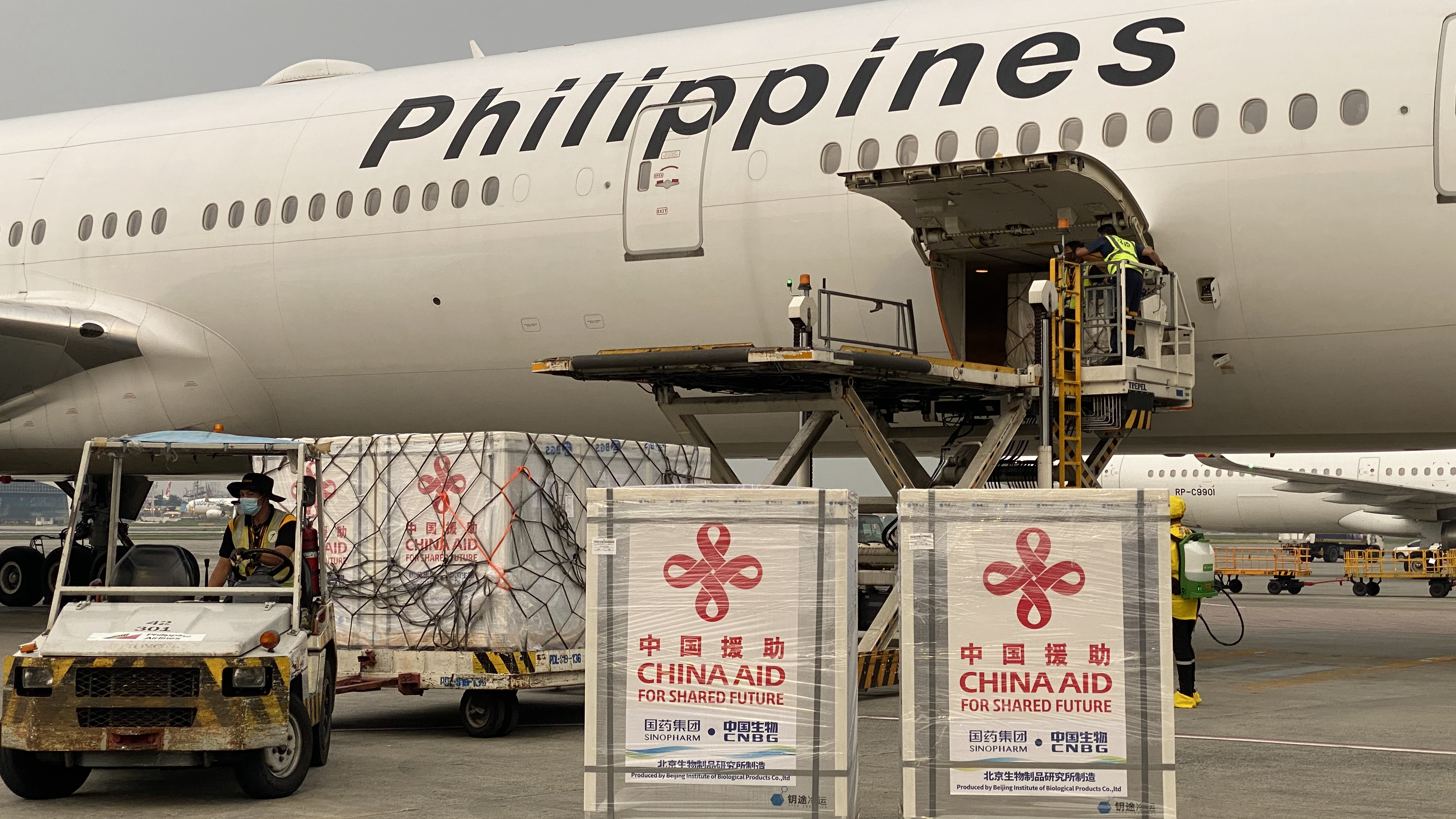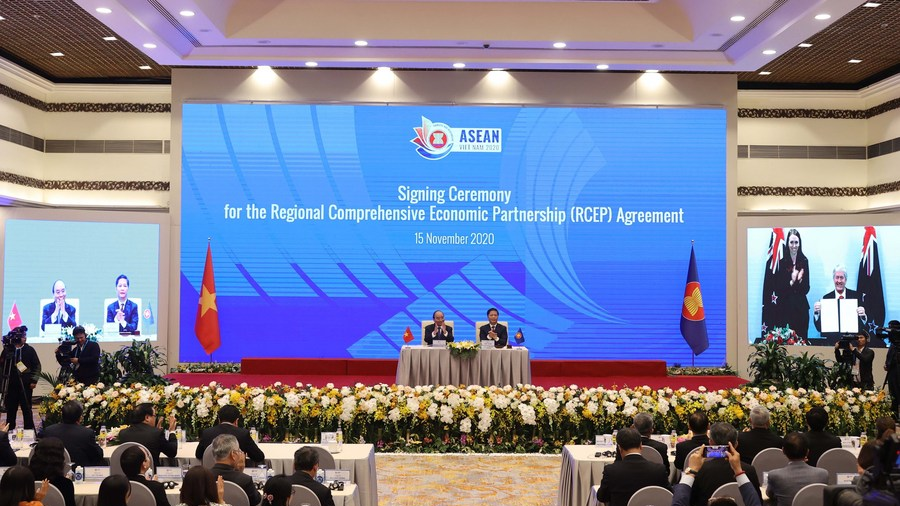
CoronaVac vaccines donated by China arrive in Manila, the Philippines, August 20, 2021. /CFP
CoronaVac vaccines donated by China arrive in Manila, the Philippines, August 20, 2021. /CFP
Editor's note: Andrew Korybko is a Moscow-based American political analyst. The article reflects the author's views and not necessarily those of CGTN.
The world is in the midst of interconnected crises that have caused confusion and uncertainty about the future. The U.S. used to lead the international community's efforts during such times back during the brief days when it was still the unipolar hegemon, but its fading power and influence over the years created the opportunity for China to demonstrate the way forward instead. Whether it's COVID-19, the challenges connected with Big Tech, or geopolitical tensions, the country is leading the way out of the world's many crises.
Starting with the pandemic, China has shown the international community the most effective way to contain the virus' spread. Its depoliticized and purely scientific approach to everything set the global standard for how to respond to epidemiological crises. Not only that, but it also was the first country to achieve one billion vaccinations. In addition, China has donated millions of vaccines to fellow developing countries, which is consistent with Chinese President Xi Jinping's well-known support for their interests in all international fora.
The country is also exemplified by its proactive approach to climate change. President Xi announced that China will reach carbon neutrality before 2060. It's scaling up its investment in alternative power sources while divesting from traditional ones like coal. Its carbon emissions per unit continue to drop and the country is the world's largest producer of green technologies, the latter of which are increasingly being exported to developing countries.
The global economic crisis weighs heavily on everyone's mind, but China recovered quicker than anyone else. This is because of its structurally sound economic fundamentals. The country is nowadays focused on balancing between internal and external trade per its new development paradigm of dual circulation. Globalization might have been irreparably damaged had it not been for China leading the charge to revive this model through its mutually beneficial trade and investment practices.

The signing ceremony of the RCEP agreement is held via video conference in Hanoi, Vietnam, November 15, 2020. /Xinhua
The signing ceremony of the RCEP agreement is held via video conference in Hanoi, Vietnam, November 15, 2020. /Xinhua
It helped found the world's largest trade deal, the Regional Comprehensive Economic Partnership, in late 2020. Shortly thereafter, China reached its Comprehensive Agreement on Investment with the EU. These two developments complemented its Belt & Road Initiative, which is laying the basis for new trade routes and digital connectivity across the world. They helped save globalization from the destructive plans of former U.S. President Donald Trump and thus helped the global economy recover quicker from COVID-19.
Artificial Intelligence, automation, digitalization, and 5G networks are the four trends most powerfully shaping the post-COVID-19 global economy, which collectively characterize what's been termed the "Fourth Industrial Revolution"(4IR). China is also leading the way in this as proven by its hefty investments in these fields as well as its world-class companies. Furthermore, China is showing the world how to responsibly regulate Big Tech through its recent reforms across that industry.
The 4IR's tech dependence will have a major impact on society, especially among the youth, which is why China is also proactively getting involved in this sphere as well. Its recent decision to drastically limit the time that children spend playing computer games and its efforts to counter the pernicious influence of obsessive celebrity fan culture are evidence of this. Other societies can learn a lot from the path that China is charting in this respect if they want to ensure that their children remain emotionally healthy in the future.
The final example is about managing the world's many interconnected crises is its pragmatic diplomatic stance to geopolitical tensions. China remains firmly committed to the international legal principles enshrined in the UN Charter. It steadfastly resists the U.S. and its allies' revisionist practices and always proposes fair solutions to issues such as those concerning Afghanistan, the Democratic People's Republic of Korea, and Iran, among many others. Chinese diplomacy is therefore nowadays rightly regarded as world-class.
What all of this shows is that China has responsibly sought to lead the world out of the confusion and uncertainty of the present times. It does so as an equal member of the international community, not as a self-assumed "exceptional" one like the U.S. had previously done during the brief period of its unipolar hegemony. China's multipolar approach to the world's many problems embodies justice, pragmatism, and vision. The end result is to assemble a community of common destiny for mankind where everyone will mutually benefit.
(If you want to contribute and have specific expertise, please contact us at opinions@cgtn.com.)

